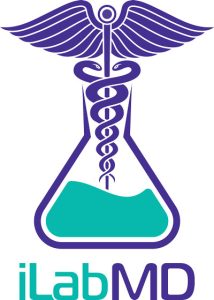Gut Health
When Conventional Medicine Fails, there is a Functional Medicine Approach at iLabMD
The Power of Personalized Functional Medicine
Understanding the Importance of Initial Consultations
As the world of functional medicine expands, it’s crucial to understand that while you may be tempted to request a lab test without an initial consultation, everyone is unique. The same test that worked wonders for a friend might not be beneficial for you. That’s why at iLabMD, we stress the importance of an initial consultation before proceeding with any testing.
Let's Get to Know Each Other
Understanding you and your unique lifestyle is the cornerstone of curating a treatment plan tailored to your body. Our team of experts are your partners in your journey towards a healthier future.
Know Which Test You Need?
Bypass our initial consultation, order one of our comprehensive tests today and gain crucial insights into your health with our 1-hour, post-test interpretation.
Get To Know Dr. Maria Azizian
Want to know more about the expert guiding your health journey?
Discover the passion, expertise, and commitment that Dr. Maria Azizian brings to your healthcare.
Why the Initial Consultation Matters
During the initial consultation, you'll have the opportunity to discuss your symptoms and health goals with our medical providers. This dialogue helps us guide you towards the necessary tests and away from those that might not be useful in your specific case. We recommend sending us your latest blood work via our HIPA protected portal prior to your initial appointment to give our physicians a better understanding of your health.
Empower Your Wellness Journey With Personalized, On-Demand Healthcare
- Harness Your Health at Home
- Painless Testing with Urine or Saliva
- Blood draw not required for most tests
ORDER ONLINE NOW
Gut Health Test
Includes GI-MAP with Zonulin by Diagnostic Solutions (used for diagnosis and / or monitoring of IBS, GI issues (diarrhea, constipation, GERD), brain fog, autoimmune diseases, skin issues (rash, dermatitis, acne), mood disorders (depression, anxiety), diabetes, weight loss issues.

Booking Provided by Healthie
The Process of Testing
After the initial consultation and ordering of labs, it typically takes 2-4 weeks for results to come in. Once received, we’ll schedule a review of the results and a treatment recommendation session with the provider. Please note that occasionally, phlebotomy (blood draw) is needed. In such cases, we will find a lab near you or arrange a mobile phlebotomy technician to come to you. An extra charge ($30-$100) will be applied depending on the phlebotomy service.

Real Results in 5 Easy Steps!
Test results in 2-4 weeks depending on the complexity of your test.
1
Order The Test Packages Online
2
Complete Tests In The Comfort Of Your Home
3
Mail Your Test Specimen to the Lab
4
Receive Your Scheduling Link Once Results Are Available
5
Attend Your Telemedicine Session to Discuss Results
For best results, an initial consultation with a trusted professional is strongly recommended
During the initial consultation, you'll have the opportunity to discuss your symptoms and health goals with our medical providers. This dialogue helps us guide you towards the necessary tests and away from those that might not be useful in your specific case. We recommend sending us your latest blood work via our HIPA protected portal prior to your initial appointment to give our physicians a better understanding of your health.
Learn More & Get Answers To Gut Health FAQs
The gut plays a crucial role in the production of serotonin, a neurotransmitter and hormone that influences various bodily functions, including mood, appetite, and digestion. Approximately 90% of serotonin is found in the cells of the gastrointestinal tract, particularly in enterochromaffin cells in the intestinal lining.
The process of serotonin production in the gut involves the conversion of the amino acid tryptophan into serotonin. Several key steps are involved:
It’s important to note that while the gut is a significant source of serotonin, the brain also produces serotonin, and there is a complex interplay between the gut and the brain in serotonin regulation. The gut-brain axis is a bidirectional communication system that involves the central nervous system (CNS) and the enteric nervous system (ENS) within the gastrointestinal tract. Changes in gut health and microbiome composition can influence serotonin production and signaling, potentially impacting mood and mental health.
Serotonin is also involved in regulating peristalsis (the movement of the digestive tract), secretion of digestive enzymes, and other gastrointestinal functions. Imbalances in serotonin levels in the gut can contribute to digestive disorders such as irritable bowel syndrome (IBS) and may play a role in mood disorders like depression and anxiety. Researchers continue to explore the intricate connections between gut health, serotonin production, and overall well-being.
The functions of the gut include digestion, absorption, immune protection, microbial balance and “neurocommunication”.
Gut mucosa (inner lining) is the largest protective organ of the body, measuring about about 430 square feet.
Impairments in gut absorption and digestion can lead to a range of digestive problems and nutritional deficiencies. Here are some common issues related to impaired gut absorption and digestion:
Malabsorption Syndromes: Conditions like celiac disease, Crohn’s disease, and chronic pancreatitis can impair the body’s ability to absorb nutrients properly. Celiac disease, for example, involves an autoimmune reaction to gluten that damages the lining of the small intestine, leading to malabsorption of nutrients.
Lactose Intolerance: This condition occurs when the body lacks the enzyme lactase, which is needed to digest lactose, a sugar found in milk and dairy products. Without enough lactase, undigested lactose can lead to bloating, gas, and diarrhea.
Poor mastication (chewing): Poor mastication, which refers to inadequate chewing of food, can lead to several gut problems and overall digestive issues. Proper chewing is a crucial part of the digestion process as it breaks down food into smaller particles, mixes it with saliva, and prepares it for further digestion in the stomach and intestines. Here are some gut problems that can arise from poor mastication:
Pancreatic Insufficiency: The pancreas produces enzymes that are crucial for the digestion of fats, proteins, and carbohydrates. Conditions that affect the pancreas, such as chronic pancreatitis or pancreatic cancer, can lead to insufficient enzyme production, impairing digestion.
Bile Duct Disorders: The liver produces bile, which is stored in the gallbladder and released into the small intestine to aid in the digestion and absorption of fats. Blockages or disorders of the bile ducts can disrupt this process.
Hypochlorhydria: Hypochlorhydria is a condition characterized by abnormally low levels of stomach acid, or hydrochloric acid, in the stomach. Stomach acid plays a crucial role in the digestive process by breaking down food, sterilizing it to kill harmful bacteria, and facilitating the absorption of certain nutrients. When the stomach produces insufficient acid, it can lead to a range of digestive problems. Here are some key points about hypochlorhydria:
Small Intestinal Bacterial Overgrowth (SIBO): SIBO occurs when there is an abnormal increase in the number or types of bacteria in the small intestine. This can interfere with the absorption of nutrients and lead to symptoms like diarrhea, bloating, and nutrient deficiencies.
Gastric Surgery: Certain weight loss surgeries, such as gastric bypass or sleeve gastrectomy, alter the anatomy of the digestive tract. While effective for weight loss, these procedures can affect nutrient absorption and require careful monitoring and supplementation.
Medications: Some medications, such as proton pump inhibitors (PPIs) used to reduce stomach acid, can affect digestion and nutrient absorption when used for extended periods.
Food Allergies: Allergic reactions to certain foods can lead to inflammation and damage to the gut lining, affecting nutrient absorption.
Aging: As people age, digestive function can naturally decline, leading to reduced enzyme production and absorption capacity.
Treatment and management of impaired gut absorption and digestion depend on the underlying cause. It may involve dietary changes, enzyme replacement therapy, medications, or surgery. If you suspect you have issues with gut absorption or digestion, it’s important to consult a healthcare professional for a proper diagnosis and treatment plan.
Decreased intestinal permeability, or leaky gut has been found to be the root cause of many diseases.
Leaky gut syndrome, also known as increased intestinal permeability, is a condition where the lining of the small intestine becomes more porous than normal, allowing undigested food particles, toxins, and bacteria to leak into the bloodstream. This condition is not widely recognized by the medical community, and its exact causes and effects are still a subject of ongoing research. However, here are some key points about leaky gut:
Intestinal Barrier: The lining of the small intestine is responsible for absorbing nutrients from food while acting as a barrier to prevent harmful substances from entering the bloodstream. In a healthy gut, tight junctions between cells keep this barrier intact.
Leaky Gut Symptoms: Leaky gut is often associated with a range of symptoms, including digestive issues (bloating, gas, diarrhea), food sensitivities, allergies, skin problems, fatigue, and even mood disorders. However, these symptoms can be non-specific and overlap with other conditions.
Potential Causes: The causes of leaky gut are not fully understood, but they may include chronic stress, a poor diet high in processed foods, excessive alcohol consumption, the use of nonsteroidal anti-inflammatory drugs (NSAIDs), certain infections, and genetic factors.
Dietary Factors: Certain dietary factors, such as gluten and dairy, can contribute to intestinal permeability in susceptible individuals.
Treatment: Managing leaky gut often involves addressing underlying factors such as reducing stress, improving diet, and addressing any identified food sensitivities. Probiotics and supplements play a significant role in the treatment.
Decreased intestinal permeability, or leaky gut has been found to be the root cause of many diseases.
Leaky gut syndrome, also known as increased intestinal permeability, is a condition where the lining of the small intestine becomes more porous than normal, allowing undigested food particles, toxins, and bacteria to leak into the bloodstream. This condition is not widely recognized by the medical community, and its exact causes and effects are still a subject of ongoing research. However, here are some key points about leaky gut:
Intestinal Barrier: The lining of the small intestine is responsible for absorbing nutrients from food while acting as a barrier to prevent harmful substances from entering the bloodstream. In a healthy gut, tight junctions between cells keep this barrier intact.
Leaky Gut Symptoms: Leaky gut is often associated with a range of symptoms, including digestive issues (bloating, gas, diarrhea), food sensitivities, allergies, skin problems, fatigue, and even mood disorders. However, these symptoms can be non-specific and overlap with other conditions.
Potential Causes: The causes of leaky gut are not fully understood, but they may include chronic stress, a poor diet high in processed foods, excessive alcohol consumption, the use of nonsteroidal anti-inflammatory drugs (NSAIDs), certain infections, and genetic factors.
Dietary Factors: Certain dietary factors, such as gluten and dairy, can contribute to intestinal permeability in susceptible individuals.
Treatment: Managing leaky gut often involves addressing underlying factors such as reducing stress, improving diet, and addressing any identified food sensitivities. Probiotics and supplements play a significant role in the treatment.
The human microbiome is home to trillions of microorganisms, primarily bacteria. While the exact number can vary from person to person, it’s estimated that there are approximately 100 trillion bacteria in the human microbiome. These bacteria inhabit various parts of the body, with the largest populations found in the gut, where they play essential roles in digestion, immunity, and overall health. The microbiome also includes other microorganisms such as viruses, fungi, and archaea, but bacteria are the most abundant and well-studied component.
WHAT CAN AFFECT GUT MICROBIOME?
The composition of the gut microbiome can be influenced by a variety of factors. It’s a dynamic ecosystem that can change over time in response to both internal and external influences. Here are some key factors that can impact the gut microbiome:
Diet: The type and quantity of food you eat have a significant impact on your gut microbiome. A diet rich in fiber, fruits, vegetables, and fermented foods can promote a diverse and healthy microbiome. Conversely, a diet high in processed foods, sugars, and saturated fats may lead to an imbalance in gut bacteria.
Antibiotics: Antibiotics are designed to kill harmful bacteria, but they can also affect beneficial bacteria in the gut. Overuse or misuse of antibiotics can disrupt the balance of the microbiome and lead to dysbiosis.
Probiotics: Taking probiotic supplements or consuming probiotic-rich foods (e.g., yogurt, kefir) can introduce specific strains of beneficial bacteria to the gut and potentially influence the microbiome.
Stress: Chronic stress can impact the gut-brain axis and alter the composition of the gut microbiome. Stress management techniques may help mitigate these effects.
Illness and Infections: Gastrointestinal infections and certain medical conditions can temporarily disrupt the gut microbiome. Recovery often involves restoring balance through diet, medications, or medical treatment.
Age: The gut microbiome can change with age. Infants have a different microbiome composition than adults, and the elderly may experience changes as well.
Lifestyle Factors: Smoking, alcohol consumption, and lack of physical activity can influence the gut microbiome.
Environmental Exposures: Environmental factors, such as exposure to pollutants or toxins, can affect the gut microbiome.
Genetics: Genetics play a role in determining the initial composition of your microbiome, but it can still be modified by other factors.
Medical Treatments: Certain medical treatments, such as chemotherapy or radiation therapy, can affect the gut microbiome. Healthcare providers may take steps to manage these effects.
Disease and Conditions: Some diseases and conditions, like inflammatory bowel disease (IBD) or irritable bowel syndrome (IBS), are associated with alterations in the gut microbiome.
It’s important to note that the gut microbiome is highly individualized, and what influences one person’s microbiome may not have the same effect on another’s. Additionally, research on the gut microbiome is ongoing, and our understanding of its complexity and its role in health and disease continues to evolve. Maintaining a balanced and diverse microbiome through a healthy diet and lifestyle choices is generally considered beneficial for overall health.
Dysfunction or imbalance in the gut microbiome, a condition known as dysbiosis, has been associated with various health issues and diseases. While a direct cause-and-effect relationship is not always clear, research suggests that an unhealthy gut microbiome may contribute to the development or exacerbation of certain conditions. Here are some diseases and health problems that have been linked to gut microbiome dysfunction.
Inflammatory Bowel Disease (IBD): Conditions like Crohn’s disease and ulcerative colitis are characterized by chronic inflammation of the gut. Dysbiosis in the gut microbiome is thought to play a role in the development and progression of these diseases.
Irritable Bowel Syndrome (IBS): IBS is a functional gastrointestinal disorder that can cause abdominal pain, bloating, and changes in bowel habits. Alterations in the gut microbiome have been observed in some individuals with IBS.
Obesity: Research has suggested a potential link between gut microbiome composition and obesity. An imbalance in the microbiome may affect how the body processes and stores calories.
Type 2 Diabetes: Some studies have shown differences in the gut microbiome between individuals with type 2 diabetes and those without the condition. The microbiome may influence glucose metabolism and insulin sensitivity.
Autoimmune Diseases: Dysbiosis has been associated with various autoimmune diseases, including rheumatoid arthritis, lupus, and multiple sclerosis. Changes in the gut microbiome may trigger or exacerbate autoimmune responses.
Allergies and Asthma: Altered gut microbiome composition has been linked to an increased risk of allergies and asthma, particularly in children.
Mental Health Disorders: The gut-brain axis is a bidirectional communication system between the gut and the brain. Dysbiosis may influence mental health conditions such as depression, anxiety, and even neurodevelopmental disorders like autism.
Cardiovascular Disease: Emerging research suggests a possible connection between gut microbiome imbalances, inflammation, and cardiovascular disease risk factors.
Liver Diseases: Conditions like non-alcoholic fatty liver disease (NAFLD) and alcoholic liver disease (ALD) have been associated with changes in the gut microbiome.
Colon Cancer: Dysbiosis may contribute to an increased risk of colorectal cancer by influencing inflammation and the production of certain metabolites.
It’s important to emphasize that while these associations are being explored, causation is often complex and may involve multiple factors. Additionally, the gut microbiome is highly individualized, and what may be detrimental for one person’s microbiome may not be the same for another’s.
Research in this field is ongoing, and our understanding of the gut microbiome’s role in health and disease continues to evolve. Maintaining a healthy gut microbiome through a balanced diet, regular exercise, and other lifestyle factors is generally considered beneficial for overall health.
The neuroenteric mechanism of the gut refers to the complex network of nerves and neurons that control the functioning of the gastrointestinal (GI) tract. This system plays a crucial role in regulating various digestive processes, including peristalsis (the movement of food through the digestive tract), secretion of digestive juices, and the coordination of various digestive functions.
Here are some key points about the neuroenteric mechanism of the gut:
Enteric Nervous System (ENS): The ENS is often referred to as the “second brain” of the body because it consists of a vast network of neurons located within the walls of the digestive tract. It operates independently of the central nervous system (the brain and spinal cord) but can communicate with it.
Intrinsic Control: The ENS can function autonomously, meaning it can regulate GI functions without input from the central nervous system. It can sense the presence of food, control muscle contractions, and coordinate the release of digestive enzymes and hormones.
Extrinsic Control: While the ENS can operate independently, it also receives input from the central nervous system through extrinsic nerves. The vagus nerve, for example, plays a role in transmitting signals from the brain to the gut and vice versa.
Reflexes: The ENS can generate reflexes in response to various stimuli. For example, the gastrocolic reflex triggers an increase in motility in the colon after eating, helping to move waste along.
Communication: The ENS communicates with the central nervous system and other parts of the body via neurotransmitters and hormones. It can influence emotions and stress responses and is closely linked to the gut-brain axis.
Disorders: Dysfunctions in the neuroenteric mechanism of the gut can lead to digestive disorders like irritable bowel syndrome (IBS) and inflammatory bowel disease (IBD). These conditions can result from abnormalities in the ENS or its communication with the central nervous system.
Understanding the neuroenteric mechanism of the gut is essential for comprehending how the digestive system functions and how it can be affected by various factors, including stress, diet, and neurological conditions.
Explore Our Test Packages
Our process begins with an initial intake consultation to define the issue and decide which tests would be beneficial both medically and financially. We guide you towards the most medically high-yield and cost-effective testing and treatment options. We ensure that the results obtained from sophisticated testing improve your health.
We believe in transparency, so there are no hidden fees with iLabMD. Our initial consultation fee is $385 for a 1-hour session. Please note that this fee does not include any tests. If further testing is required based on the consultation with the provider, you will be informed about its purpose and cost. No testing is done without your consent or payment.
The review of test results is a 1-hour session priced at $385. The timing of a follow-up visit varies depending on your condition. A 30-minute follow-up is $250. We also offer a 4 follow-up package at a discounted rate of $900, giving you a savings of $100.




